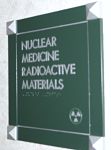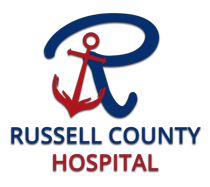
Nuclear Medicine Radioactive Materials
Nuclear Medicine
Nuclear Medicine Studies
Nuclear Medicine is a subspecialty within the field of Radiology. This technology combines the use of computers, detectors, and radioactive substances. Nuclear medicine looks at both the physiology (function) and the anatomy of the body in establishing diagnosis and treatment.A patient is given a small dose of radioactive material, usually I.V. but sometimes orally, that localizes in a specific body organ system such as the liver, spleen, kidneys, heart, GI tract, bones, thyroid, etc. This compound called a "tracer" eventually collects in the target organ and gives off energy as "gamma rays". The Nuclear Medicine or Gamma Camera detects the gamma rays and works with a computer to produce images and measurements of organs and tissues. The tracer isotope that is used is determined by what part of the body is under study since some compounds collect in specific organs better than others.
Nuclear Medicine studies "function" or "physiology" and not just anatomy as do regular x-rays and CT scans.
Some of the most common uses of the new nuclear medicine technology will be to image blood flow and function of the heart, analyze kidney function, identify gallbladder dysfunction, evaluate bones for fracture, infection, arthritis, or tumor, determine the presence or spread of cancer, identify bleeding into the bowel, locate the presence of infection and measure thyroid function. The functional information provided by nuclear medicine exams is unique and currently unattainable by using other imaging procedures.
Nuclear Medicine Studies:
Bone ScanCardiac Stress Test (perfusion)
HIDA Scan (Hepatobiliary or Gallbladder Scan)
Lung V/Q Scan
Thyroid Scan (Usually preformed in conjunction with thyroid uptake test)
Gastric Emptying Scan
Gastrointestinal Bleed Scan
Renal Scan
Gallium Scan
White Blood Cell Scan
Parathyroid Scan
Please call (270) 866 - 4141 ext. 149 if you have questions regarding Nuclear Medicine.
General Radiology Information & Frequently Asked Questions:
1. The Radiology/Imaging Department is open 24/7 hours a day. Three hundred sixty-five days a year. Certain exams do need scheduling. Please feel free to call with questions concerning which exams need scheduling or any other questions . (270) 866-4141 ext. 139
2. There will be a separate bill for the Radiologist's reading fee of your exam. Questions about the Radiologist Reading fees are not associate with the hospital billing department. The number for questions regarding charges is: 1-800-282-9221 or 1-866-757-4524.
3.What are Pre-Certs?
Pre-certs are pre-certifications or pre-approval from your insurance company to perform the test. Certain tests require pre-certs. (CT Scans, Ultrasound Echoes, Nuclear Medicine Stress Tests) The ordering Physician's office obtains the Pre-Cert, not the Radiology Department.
4.Radiology reports are sent from the Medical Records Department to your Physician's office. If you have any questions regarding your report: the Medical Record Department hours are: Monday - Friday 7:00 a.m. - 4:00 p.m. Central Time. (270) 866-4141 ext. 129/131
5. We will supply patients with a CD of their exam for physicians that are out of town. Local physicians have computer access to their patients' examinations (see Amicas PACS information below).
RCH Imaging Use Amicas PACS (available to all local Physicians and some out of town Physicians)
Amicas PACS downloads a reader App in order for a study to be viewed as if you were viewing it on actual work station. Some computers will not allow the reader to download. If CD will not load please call the RCH Radiology Department at (270) 866-4141 ext. 516 or 517
6. A doctor's orders must accompany all exams.
7. Most reports will be in the Physician's office within 48 hours (Certain exams take longer... please feel free to ask the technologist)
8. Exams involving IV (intravenous) contrast may require additional lab work... this may increase your total exam time.
9. CT Abdomen and Pelvis exams usually require oral contras. After the first bottle is finished thirty minutes later a second bottle will be given to drink. Approximately thirty minutes after the second bottle is finished the CT scan will be given.
10. Periodically some delays may be encountered while you are waiting on your exam. Surgery patients, Emergency room patients, lab results, delay of pre-certs, or delay of the referring physicians order all factor into total exam time.
The Russell County Radiology / Imaging Department will make every effort to provide an efficient and caring experience for you.
